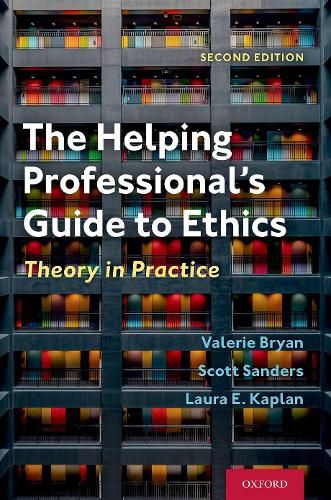Readings Newsletter
Become a Readings Member to make your shopping experience even easier.
Sign in or sign up for free!
You’re not far away from qualifying for FREE standard shipping within Australia
You’ve qualified for FREE standard shipping within Australia
The cart is loading…






The Helping Professional’s Guide to Ethics, Second Edition develops a comprehensive framework for ethics based on Bernard Gert’s theory of common morality. Moving beyond codes of ethics, Bryan, Sanders, and Kaplan encourage students to develop a cohesive sense of ethical reasoning that both validates their moral intuition and challenges moral assumptions. Part I of the text introduces basic moral theory, provides an overview to moral development, and introduces the common morality framework. Part II focuses on common ethical issues faced by helping professionals such as: confidentiality, competency, paternalism, informed consent, and dual relationships. Each chapter provides an overview of each concept and their ethical relevance for practice. Throughout the text, students put their critical thinking skills into practice to promote deep learning. Real-life cases bridge the gap between theory and practice, and discussion questions reinforce the concepts introduced in each chapter.
$9.00 standard shipping within Australia
FREE standard shipping within Australia for orders over $100.00
Express & International shipping calculated at checkout
The Helping Professional’s Guide to Ethics, Second Edition develops a comprehensive framework for ethics based on Bernard Gert’s theory of common morality. Moving beyond codes of ethics, Bryan, Sanders, and Kaplan encourage students to develop a cohesive sense of ethical reasoning that both validates their moral intuition and challenges moral assumptions. Part I of the text introduces basic moral theory, provides an overview to moral development, and introduces the common morality framework. Part II focuses on common ethical issues faced by helping professionals such as: confidentiality, competency, paternalism, informed consent, and dual relationships. Each chapter provides an overview of each concept and their ethical relevance for practice. Throughout the text, students put their critical thinking skills into practice to promote deep learning. Real-life cases bridge the gap between theory and practice, and discussion questions reinforce the concepts introduced in each chapter.